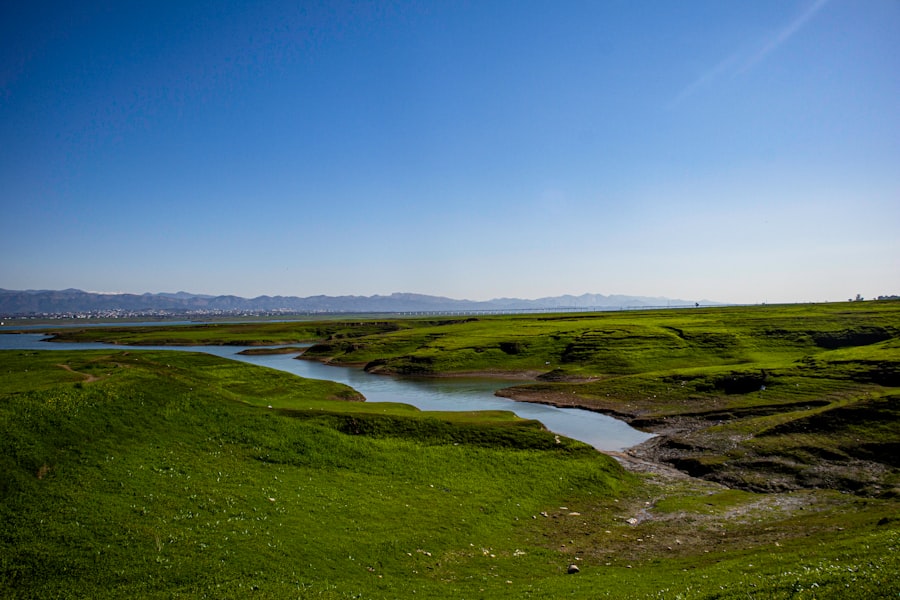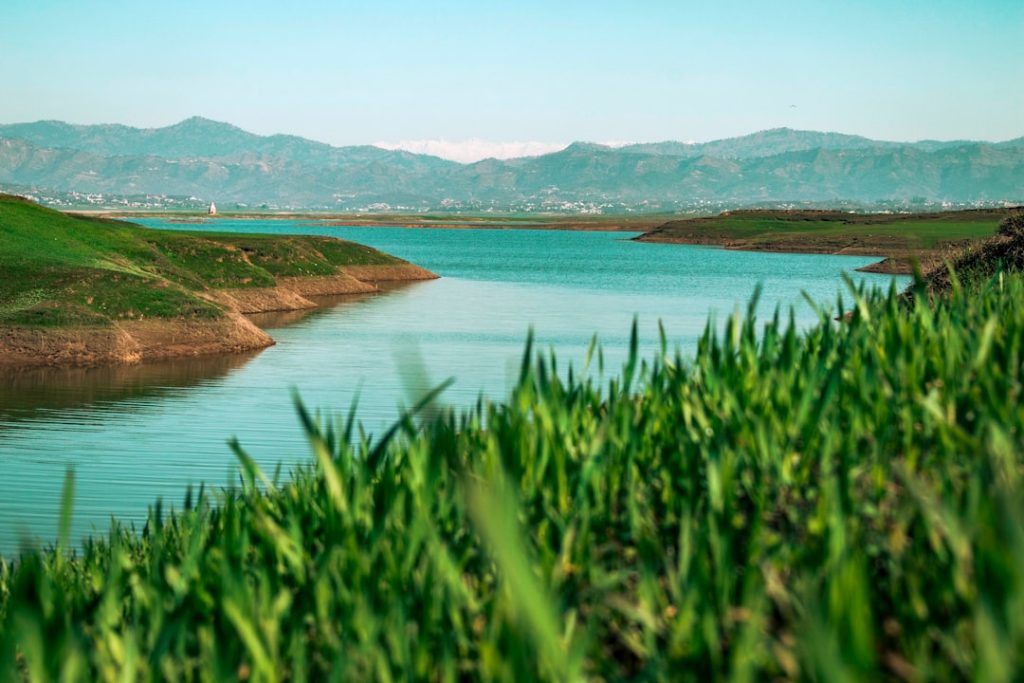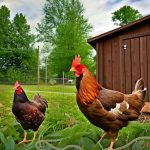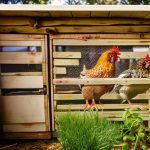Heat stress is a significant concern for chickens, particularly during hot Texas summers. Chickens are vulnerable to heat stress due to their lack of sweat glands, relying instead on panting to regulate body temperature. When temperatures rise, chickens can quickly overheat, leading to various health issues.
Common signs of heat stress in chickens include panting, lethargy, reduced egg production, and potential death in severe cases. Chicken owners must recognize these signs and take preventive measures. Heat stress occurs when environmental temperatures exceed the chicken’s comfort zone, typically between 65-75 degrees Fahrenheit.
Above this range, chickens struggle to cool down, resulting in increased respiratory rates and decreased feed intake. In extreme cases, heat stress can cause heat stroke, organ failure, and death. It is essential for chicken owners to understand the causes and symptoms of heat stress to implement effective strategies for keeping their flocks safe and healthy during hot weather conditions.
Table of Contents
- 1 Providing Proper Ventilation in the Coop
- 2 Offering Shade and Cooling Areas in the Chicken Run
- 3 Ensuring Access to Fresh, Cool Water
- 4 Adjusting Feeding Schedule and Diet for Hot Weather
- 5 Monitoring and Managing Heat Stress Symptoms in Chickens
- 6 Tips for Keeping Chickens Cool During Texas Summers
- 7 FAQs
- 7.1 What are the best ways to keep chickens cool in Texas?
- 7.2 How hot does it get in Texas and why is it important to keep chickens cool?
- 7.3 What are the signs of heat stress in chickens?
- 7.4 What are some tips for providing shade for chickens in Texas?
- 7.5 How can I ensure my chickens have access to plenty of fresh water in hot weather?
- 7.6 Are there any specific breeds of chickens that are better suited for hot weather in Texas?
Key Takeaways
- Heat stress in chickens can lead to decreased egg production, poor growth, and even death
- Proper ventilation in the coop is essential to prevent heat buildup
- Providing shade and cooling areas in the chicken run can help chickens regulate their body temperature
- Access to fresh, cool water is crucial for chickens to stay hydrated and cool
- Adjusting feeding schedule and diet can help chickens cope with hot weather and reduce heat stress symptoms
Providing Proper Ventilation in the Coop
Why Ventilation Matters
Proper ventilation is crucial for maintaining a comfortable environment for chickens, especially during the hot Texas summers. Good ventilation helps to remove excess heat, moisture, and ammonia from the coop, creating a more comfortable and healthy living space for the chickens. Without adequate ventilation, the coop can quickly become hot and stuffy, leading to heat stress and other health issues for the flock.
Installing Ventilation Systems
To ensure proper ventilation, chicken owners should consider installing windows, vents, and fans in the coop to promote air circulation and cooling. In addition to natural ventilation, chicken owners can also use mechanical ventilation systems to help regulate the temperature in the coop. Exhaust fans and evaporative cooling systems can be used to remove hot air and reduce the temperature inside the coop.
Maintenance is Key
It’s important to regularly clean and maintain ventilation systems to ensure they are functioning properly and effectively removing excess heat and moisture from the coop. By providing proper ventilation in the coop, chicken owners can help their flock stay cool and comfortable during the hot Texas summers.
Offering Shade and Cooling Areas in the Chicken Run

In addition to providing proper ventilation in the coop, it’s important to offer shade and cooling areas in the chicken run to help chickens beat the heat during the hot Texas summers. Shade is essential for protecting chickens from direct sunlight and reducing the risk of heat stress. Chicken owners can create shade in the chicken run by using tarps, umbrellas, or natural structures such as trees or shrubs.
Providing ample shade allows chickens to escape the sun’s intense rays and find relief from the heat. In addition to shade, offering cooling areas in the chicken run can help chickens stay comfortable during hot weather. This can be achieved by placing shallow containers of water or misting systems in the chicken run to provide opportunities for chickens to cool off.
Some chicken owners also use frozen treats such as ice blocks or frozen fruits and vegetables to help chickens lower their body temperature. By offering shade and cooling areas in the chicken run, chicken owners can help their flock stay cool and comfortable during the hot Texas summers.
Ensuring Access to Fresh, Cool Water
Access to fresh, cool water is crucial for preventing heat stress in chickens during the hot Texas summers. Chickens need plenty of water to stay hydrated and regulate their body temperature, especially when the temperature rises. It’s important for chicken owners to regularly check water sources and ensure they are clean, cool, and easily accessible for the flock.
Providing multiple water sources throughout the coop and chicken run can help ensure all chickens have access to water at all times. In addition to providing fresh water, chicken owners can also take steps to keep water cool during hot weather. This can be achieved by placing water containers in shaded areas or using insulated containers to prevent water from heating up too quickly.
Some chicken owners also add ice cubes or frozen water bottles to water containers to help keep the water cool throughout the day. By ensuring access to fresh, cool water, chicken owners can help their flock stay hydrated and reduce the risk of heat stress during the hot Texas summers.
Adjusting Feeding Schedule and Diet for Hot Weather
During hot weather, it’s important for chicken owners to adjust their feeding schedule and diet to help prevent heat stress in their flock. Chickens tend to eat less during hot weather, so it’s important to offer smaller, more frequent meals throughout the day to ensure they are getting enough nutrients. Feeding chickens during the cooler parts of the day, such as early morning or late evening, can also help reduce the risk of heat stress by minimizing physical activity during the hottest times of day.
In addition to adjusting feeding schedules, chicken owners can also modify their flock’s diet to help them cope with hot weather. Feeding high-quality, easily digestible feed can help reduce metabolic heat production and keep chickens cooler. Some chicken owners also add electrolytes or vitamins to their flock’s water to help replace essential nutrients lost through panting and sweating.
By adjusting feeding schedules and diet for hot weather, chicken owners can help their flock stay healthy and comfortable during the hot Texas summers.
Monitoring and Managing Heat Stress Symptoms in Chickens

Recognizing Heat Stress Symptoms
Chicken owners should regularly observe their flock for signs of heat stress, such as panting, lethargy, reduced egg production, or pale combs and wattles. If any signs of heat stress are observed, immediate action should be taken to help cool down the chickens and prevent further health issues.
Proactive Measures to Manage Heat Stress
To manage heat stress symptoms, chicken owners can take several proactive measures. This includes providing access to shade and cooling areas, ensuring access to fresh, cool water, adjusting feeding schedules and diet, and promoting proper ventilation in the coop and chicken run. In severe cases of heat stress, chickens may need to be moved to a cooler location or provided with additional cooling measures such as misting systems or fans.
Preventing Serious Health Issues
By monitoring and managing heat stress symptoms in chickens, chicken owners can help prevent serious health issues and keep their flock safe during the hot Texas summers.
Tips for Keeping Chickens Cool During Texas Summers
In addition to the proactive measures mentioned above, there are several additional tips for keeping chickens cool during the hot Texas summers. Providing dust baths can help chickens stay clean and cool by removing excess oils and parasites from their feathers. Placing frozen treats such as fruits or vegetables in the coop or chicken run can provide a refreshing snack for chickens while helping them lower their body temperature.
It’s also important for chicken owners to avoid handling or disturbing their flock during the hottest parts of the day to minimize stress and physical activity. Keeping coop bedding clean and dry can also help reduce heat retention and provide a more comfortable living environment for chickens. Additionally, providing ample space for chickens to move around and spread out can help reduce crowding and promote better air circulation.
By implementing these tips along with proactive measures such as providing proper ventilation, shade, cooling areas, fresh water, adjusted feeding schedules and diet, as well as monitoring and managing heat stress symptoms, chicken owners can help their flock stay cool and comfortable during the hot Texas summers. It’s crucial for chicken owners to be proactive in preventing heat stress in their flock by creating a comfortable living environment that promotes good health and well-being for their chickens.
If you’re looking for ways to keep your chickens cool in the Texas heat, you may want to check out this article on how big a coop needs to be for a chicken. It offers tips on providing adequate space and ventilation for your chickens to stay comfortable during hot weather.
FAQs
What are the best ways to keep chickens cool in Texas?
In Texas, it’s important to provide shade, plenty of fresh water, and good ventilation for your chickens to keep them cool. You can also use misters, fans, and frozen treats to help lower their body temperature.
How hot does it get in Texas and why is it important to keep chickens cool?
Texas can experience extremely high temperatures, often reaching over 100°F during the summer months. It’s important to keep chickens cool to prevent heat stress, which can lead to illness and even death.
What are the signs of heat stress in chickens?
Signs of heat stress in chickens include panting, lethargy, loss of appetite, and a drop in egg production. It’s important to monitor your chickens closely during hot weather and take action if you notice any of these signs.
What are some tips for providing shade for chickens in Texas?
You can provide shade for your chickens by using natural shade from trees or shrubs, setting up tarps or shade cloths, or creating a covered area in their coop or run. It’s important to make sure the shade is well-ventilated to allow for airflow.
How can I ensure my chickens have access to plenty of fresh water in hot weather?
Make sure to provide multiple water sources for your chickens and check them regularly to ensure they are clean and full. Consider using larger water containers or automatic waterers to ensure they have access to plenty of water throughout the day.
Are there any specific breeds of chickens that are better suited for hot weather in Texas?
Some breeds of chickens, such as the Leghorn, Rhode Island Red, and Sussex, are known for their heat tolerance and can handle hot weather better than others. It’s important to consider the breed when raising chickens in Texas.
Meet Walter, the feathered-friend fanatic of Florida! Nestled in the sunshine state, Walter struts through life with his feathered companions, clucking his way to happiness. With a coop that’s fancier than a five-star hotel, he’s the Don Juan of the chicken world. When he’s not teaching his hens to do the cha-cha, you’ll find him in a heated debate with his prized rooster, Sir Clucks-a-Lot. Walter’s poultry passion is no yolk; he’s the sunny-side-up guy you never knew you needed in your flock of friends!







